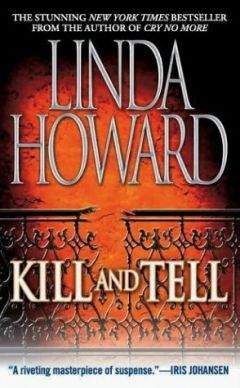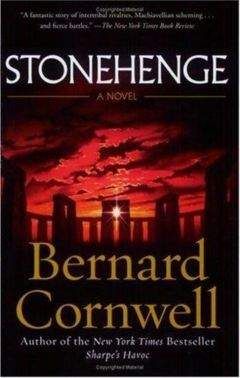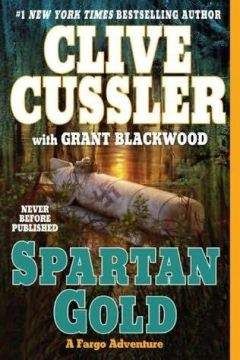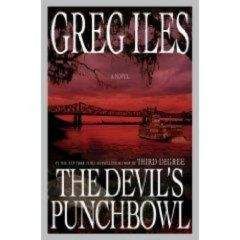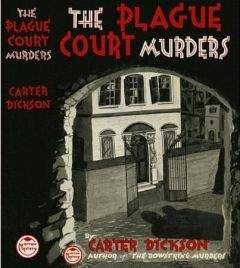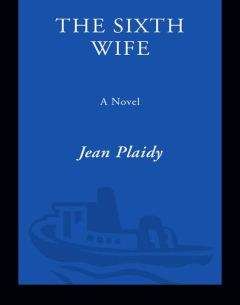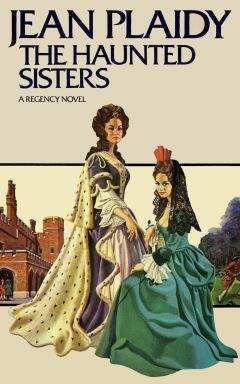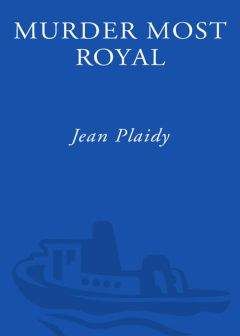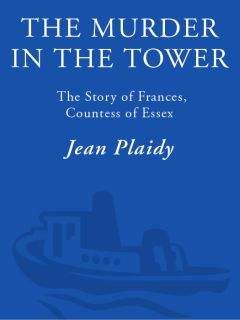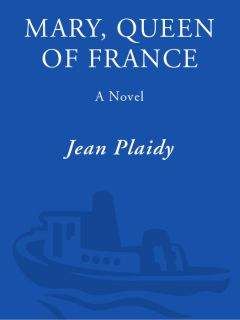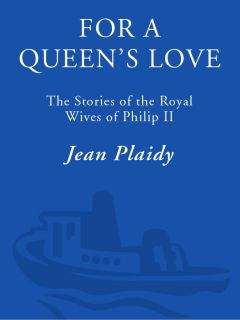Jean Plaidy - To Hold the Crown: The Story of King Henry VII and Elizabeth of York
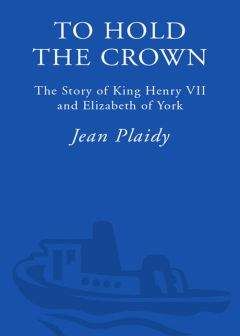
Скачивание начинается... Если скачивание не началось автоматически, пожалуйста нажмите на эту ссылку.
Жалоба
Напишите нам, и мы в срочном порядке примем меры.
Описание книги "To Hold the Crown: The Story of King Henry VII and Elizabeth of York"
Описание и краткое содержание "To Hold the Crown: The Story of King Henry VII and Elizabeth of York" читать бесплатно онлайн.
When they settled at Tournay in Flanders they had been able to bring much of their wealth with them and they were made very welcome and took several people into their household.
Peter’s good looks and amazingly pleasant manners secured him a place and very soon he became a favorite of Lady Frampton.
“You remind me,” she told him, “of our great King Edward. He was exceptionally handsome. The people loved him. It was the greatest tragedy that could befall England when he died. And, Peter, you have a look of him.”
Peter was flattered and was eager to discover all he could about the handsome King to whom he bore such a strong resemblance.
Lady Frampton was always ready to talk to him. When she rode out Peter would act as her groom and she often sent for him in the house so that she could chat to him.
It was very pleasant for her to have such an attentive audience and she was only too glad to speak of the past because the present seemed so hopeless.
“If only,” she was fond of saying, “by some stroke of good fortune, we could drive the usurping Tudor from the throne.”
Peter asked a great many questions about the late King Edward to whom he bore such a resemblance.
“I suppose,” said Lady Frampton, “the King was in Flanders at some time. I’d be ready to swear, Peter, that he was interested in some Flemish maid and that you were the result.”
“My mother is a very virtuous wife.”
“I know . . . I know. But sometimes those whom we believe to be our parents are not. You understand what I mean, Peter? Suppose the lady you think of as your mother was asked to care for a child . . . a child who came rather mysteriously into the world. Suppose that child was the result of a liaison between some persons who dared not divulge their identity.”
If it was an absurd supposition, Lady Frampton refused to accept the fact. Edward had many bastards but he had never made any secret of the fact. He had no one to answer to and even his Queen had been aware of his activities in that field and knew she must turn a blind eye to them.
Still, it was interesting to talk and the boy was very pleased at the prospect of having a king for a father. He wanted to know about the sons Edward had had by the Queen and why they didn’t rise up and take the throne away from this obnoxious Tudor.
“They disappeared. . . .It is most mysterious for none so far as I have heard have an answer to the question. Richard the Third declared the children illegitimate. The two boys were put into the Tower of London. They have never been seen since.”
“Did King Richard murder them?”
Lady Frampton was indignant. “Richard was a good Yorkist king—brother of Edward. He would never murder his own nephews. It was the Tudor. You see while they lived they were a menace to him. The elder of the boys was Edward the Fifth; his younger brother was Duke of York. And if Edward died there was still Richard of York to come before this Tudor.”
“So he kept them imprisoned in the Tower.”
“Yes . . . and no one knows what became of them.”
“If they were alive would they not show themselves?”
“It may be that they will one day.”
“And I look like them, you say, my lady?”
“Very much so. They had long blond hair . . . just like yours. And a certain bearing . . .”
Peter was very proud. He was very careful of the way he looked, the way he walked; he studied noblemen and imitated them.
Lady Frampton remarked to Sir Edward that the boy grew more royal-looking every day.
When the Framptons left for Portugal Peter went with them. He had a great desire to see the world. Lady Frampton’s talk of his resemblance to the Princes had set ambition growing in him and he had a feeling that he might become the center of great events. He dreamed about himself and there were times when his dreams seemed more real than his everyday life.
He had not been long in Lisbon when he made the acquaintance of a knight called Peter Varz de Cogna—a somewhat battle-scarred gentleman who had lost an eye and who seemed to young Peter one of the most interesting people he had ever met. The Knight too noticed the royal looks of young Warbeck and he talked to him a great deal about the recent uprising headed by Lambert Simnel.
“It is clear that the Tudor is uneasy on the throne of England,” he said. “And it is not to be wondered at considering he has very little right to it.”
Peter liked to hear how Lambert Simnel the baker’s son had been taken from his father’s shop by the priest Richard Simon and had come within a short distance of taking the throne of England.
“A baker’s son!” cried Peter, aghast. “How did he manage to pass himself off for the Earl of Warwick?”
“He had such good looks . . . and a manner of carrying himself. They say he looked the part and when they had taught him to speak . . . as an earl would speak—well, it might have been an earl himself.”
“And now he is just a scullion.”
“Some would say he has been lucky.”
“Of course he might have succeeded. And if he had . . . ?”
“He could not succeed because the real Earl of Warwick lives and is the King’s prisoner in the Tower.”
“Because,” said Peter, “he has a greater claim to the throne than the Tudor. I find it of great interest.”
“I’m not surprised. With looks such as yours you might be one of the sons of Edward yourself.”
“Would it not be strange if I were?”
“It is said that he had children all over the place. He was that kind of man.”
“I should like to go to England.”
“You would have to learn the language.”
“I do speak a little. It seems to come naturally to me and Lady Frampton has taught me a good deal.”
“You should go to Ireland first.”
“Why Ireland?”
“They have always supported the Yorkists. They would like the look of you. They would think the young Edward the Fifth or his brother of York had come back to life.”
It was not long after this that a Breton merchant came to Lisbon and stayed awhile at the house of Peter Varz. He was, he told them, on his way to Ireland where he would do business. At the mention of Ireland, Peter Warbeck’s eyes sparkled.
“It is a country I long to see,” he said.
Peter was thoughtful. Could it be possible? He did not see why not. Peter Varz would not stand in his way. He told him of his great desire to see Ireland and the Breton merchant replied that there was no difficulty about that. He was sailing for Ireland shortly and there would be a place for Peter Warbeck on his ship.
It seemed to the young man that there was some Divine purpose in all this. First he had been endowed with these marvelous looks; secondly he had met the Framptons; and now here he was on his way to Ireland.
The Breton merchant was proud of the interest his protégé aroused.
“They say he is one of the sons of Edward the Fourth,” he told people; and it was not long before Peter was invited to call on Lord Desmond.
Lord Desmond was an influential Irish peer and the Irish had always believed that they could expect better treatment from the Yorkists than from the Lancastrians. They wanted home rule and there had once been a hint from a Duke of York that he believed this might be brought about. That it would never be granted by Henry the Seventh they were certain. It might be another matter if there was a Yorkist king on the throne of England, and they would like to see this come about.
They had supported Lambert Simnel although it must have been clear that he was an impostor, but Lambert had managed to make trouble for the English and that was what the Irish liked to do beyond anything.
The Earl of Desmond was delighted by Peter Warbeck.
“Why, you have the Yorkist look. I could easily believe you are one of Edward’s sons. Tell me about yourself. From whence do you come?”
“I was in Tournay with people whom I had always believed to be my parents.”
“And they were not . . . ?”
Peter passed a hand across his brow. Lord Desmond noticed how graceful were his gestures.
“It is a little hazy . . . I remember being in a prison . . . with my brother . . . There was some trouble. . . .I cannot remember . . . although sometimes flashes of it come back to me.”
Lord Desmond was excited.
“I should like you to stay here for a while. There are people whom I would like to meet you.”
Peter felt a sense of mingling excitement and apprehension. He knew that he had stepped over the dividing line between fantasy and reality.
It was Lord Desmond and the Irish peers who had changed him. He had been through a great experience, he told himself. It was natural that he should feel as he did. The past was beginning to emerge and it was becoming increasingly difficult to tell the difference between what had actually happened and what he wanted to have happened.
That he was of noble birth everyone was ready to accept. Lord Desmond was teaching him to speak fluently in English and with an acceptable accent.
The Irish peers discussed the boy.
“He could not be the son of Clarence because he is still in the Tower,” said Desmond, “where he has been languishing since the accession of the Tudor—for no other reason, of course, than that he has a stronger claim to the throne than Henry. But he could be one of the sons of Edward the Fourth . . . those Princes who were kept in the Tower. No one knows what became of them.”
That seemed very likely. Could he be Edward the Fifth? Was he old enough for that? It seemed far more likely that he was the younger brother, Richard Duke of York.
Now if he were the young Duke of York he was in fact the true King of England providing his brother Edward the Fifth was dead.
It was an exciting project. It was just what the Irish peers were looking for. They wanted a Yorkist claimant to the throne; they were always ready for a fight; and there was nothing they liked better than bringing trouble to the English King.
Moreover, let them produce the true King of England, let them lead a rebellion against the Tudor, set the young King on the throne, and he would not forget what he owed to Ireland.
Lord Desmond was constantly in the company of Peter Warbeck. They conversed together of the affairs of England and Ireland and they decided that what had happened was that Peter (his real name was Richard Plantagenet) had been put into the Tower by his uncle Richard the Third. When Henry Tudor won the Battle of Bosworth Field he planned to murder the two little boys—which he must do, for he was to marry their sister; which he could not do if she were illegitimate (as Richard the Third proclaimed the family to be) and if she were not illegitimate then her brothers were not either; and if they were not then they were the true heirs to the throne. So here, according to Peter Warbeck, was what had happened.
The two little Princes had been taken out of the Tower and given to certain gentlemen who had orders to kill them. This was carried out in the case of the elder—King Edward the Fifth. His brother, Richard Duke of York, fared differently. The gentleman who had been selected to kill him found that he could not commit so foul a deed, for he was deeply moved by the boy’s guilelessness and could not bring himself to destroy such innocence. He had paid two men to take the boy away, strip him of his identity, give him a new name. “Swear that for eight years you will not divulge his story,” they were told. “On this condition only can his life be spared.”
So the boy was taken abroad; he wandered around and was finally taken into the house of the Warbecks who accepted him as their son.
It was a likely story—at least it was good enough to start with.
There came the day when Peter’s speech and manners were so perfect that Lord Desmond thought they should move into action. He proposed to send messages to the sovereigns of Europe announcing the fact that the younger son of Edward the Fourth, about whose death—with that of his brother—there had been a longstanding mystery, had come forth and was about to lay claim to the throne of England. His brother had been murdered, but by a miracle Richard Duke of York had escaped. As true King of England he asked those whom he was sure were his friends and would wish to see justice done, to aid him to get what was his and drive the usurping Tudor back to Wales and obscurity where he belonged.
There was immediate interest. Henry Tudor was known to be insecure on the throne; the King of France and the Emperor Maximilian would not be averse to a little trouble in England. It was always wise to keep kings engaged on their own doorsteps. It prevented their meddling in the affairs of others.
The King of Scotland sent a warm invitation for Peter to visit him; but before he could reply there was another invitation—this time from the King of France.
This was too important to be dismissed and Peter set out for France without delay.
It was at this time that Henry heard what was happening and knew that he had to discover all he could about this Peter Warbeck who called himself the Duke of York. That the man was a liar Henry was well aware. He could have told the world that it was quite impossible for him to be the Duke of York. But how could he be so sure? they would ask. There was the crux of the matter. Henry was sure, but he did not want the reason for his certainty to be known.
He sent spies to the Continent to find out how far this matter had gone and who was involved in it.
He remembered how his contemptuous treatment of Lambert Simnel had reduced the boy to a figure of fun. It showed the people how those who set out to take a crown from a king could end up watching the spits in that king’s kitchen.
He talked not angrily of this impostor but slightingly, giving him the nickname Perkin, which was sometimes given to those called Peter.
In Court circles and in the streets they talked of Perkin Warbeck and the name Henry had given him did surprisingly diminish his stature.
Henry was getting very concerned when he heard through his spies that the King of France had received Perkin Warbeck with honor as though he were indeed visiting royalty. He knew that his enemies on the Continent were just waiting to see him fall. It was a perpetual nightmare. During his early years he had been striving for the throne and when he eventually achieved it he discovered that his real troubles had begun. To be ever watchful of enemies, wondering constantly who was plotting against him, to be in constant dread of assassination . . . was this what he had dreamed of all those years in exile?
But he was committed now. He had to hold his throne for the sake of his son, King-Arthur-to-be, for the sake of the House of Tudor.
Some might have shrugged aside this ridiculous impostor, have told the world that he was liar and cheat—and the reason why it was a certainty if necessary.
Sometimes it was in the interests of peace that murder should be committed. Henry could assure himself that only in such circumstances would he be guilty of it. He wanted to be a good strong king; he wanted to bring prosperity to England; he wanted to leave a great country behind him when he died. He wanted Arthur to have an easier life than he had. Was that wrong? What happened to countries ruled by minors? There was always trouble. Looking back over history this was a lesson which stood out clearly. He had come to the throne through conquest. He did have a claim. He was descended from great British Kings Arthur and Cadwallader—his mother was descended from John of Gaunt and his grandmother had been Queen of England and daughter of the King of France. Was that not good enough?
Подписывайтесь на наши страницы в социальных сетях.
Будьте в курсе последних книжных новинок, комментируйте, обсуждайте. Мы ждём Вас!
Похожие книги на "To Hold the Crown: The Story of King Henry VII and Elizabeth of York"
Книги похожие на "To Hold the Crown: The Story of King Henry VII and Elizabeth of York" читать онлайн или скачать бесплатно полные версии.
Мы рекомендуем Вам зарегистрироваться либо войти на сайт под своим именем.
Отзывы о "Jean Plaidy - To Hold the Crown: The Story of King Henry VII and Elizabeth of York"
Отзывы читателей о книге "To Hold the Crown: The Story of King Henry VII and Elizabeth of York", комментарии и мнения людей о произведении.





